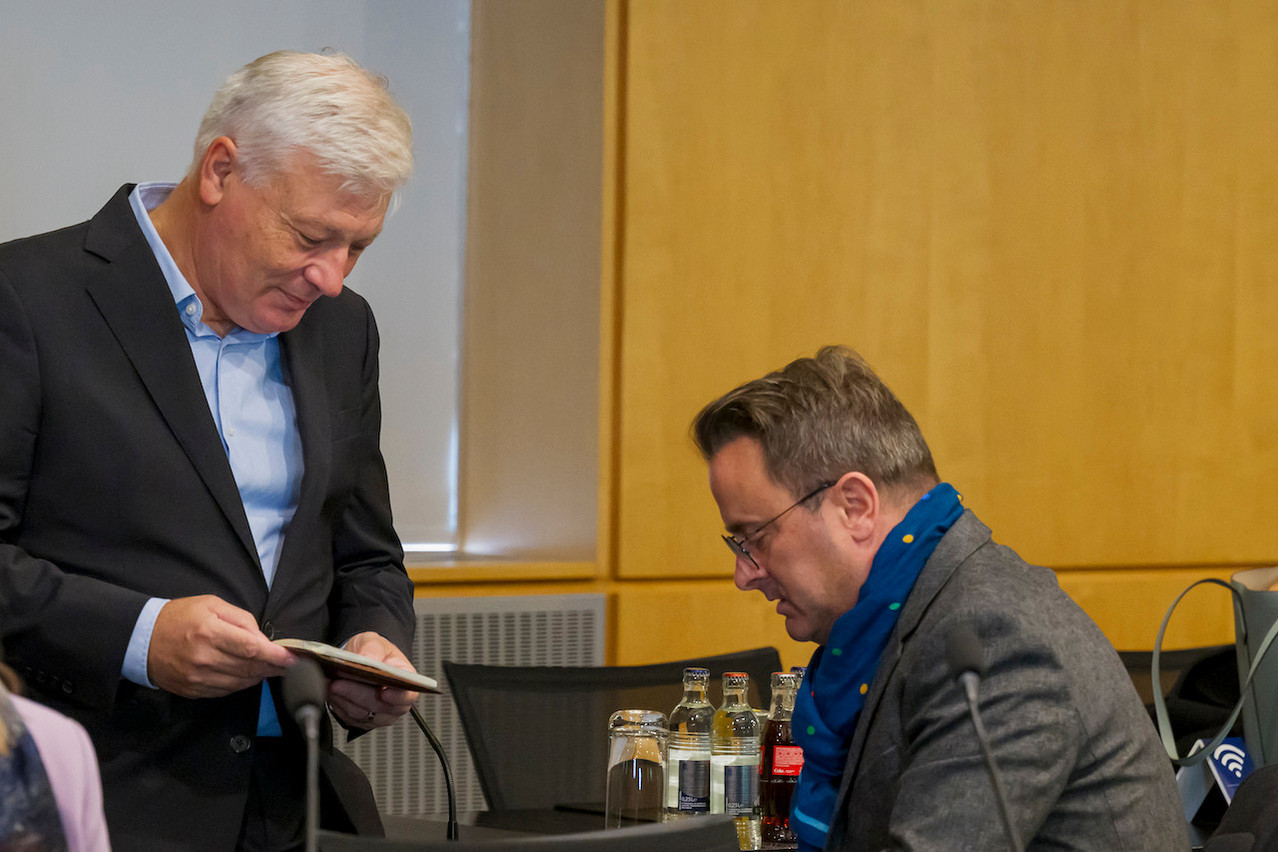At the end of another day of intense consultations with representatives of civil society, (CSV), tasked with forming the next government, expressed his satisfaction: “Once again today, we have mainly listened. Now that we are fully informed, the will be able to move forward with the drafting of the government agreement.”
Most of the working groups have already been set up, with the remainder to be done this week, after which the names on their several rosters will be released. It’s safe to assume, however, that they will comprise people close to the CSV and the DP without necessarily being members.
The 12 groups will begin their respective meetings on 17 October, and will be required to submit an interim report to Frieden (the “formateur”) on 20 October. These reports will subsequently be debated in plenary sessions by negotiators from the two parties.
Priority given to social dialogue
It must have been a busy day for the delegations: they received the OGBL, the LCGB and the CGFP in the morning and the Ecological Movement (Mouvement écologique or Meco) and the High Council for Sustainable Development (Nohaltegkeetsrot or CSDD) in the afternoon.
Commenting on the morning session devoted to trade unions and business representatives, Frieden stressed how important social dialogue is to the CSV/DP coalition: “For the partners in the next government, listening and social dialogue are extremely fundamental--like how companies can develop in the interests of their employees. It’s important to have the point of view of all the organisations concerned.”
The comment seems to have satisfied (OGBL): leaving the morning session, the general secretary of the union said she had no intention of putting the future coalition on trial. “We are going to give the new government a chance and hope that it will listen to us,” she said. These terms are much more conciliatory than Back’s (French) might have suggested.
While Back welcomed the importance attached to social dialogue, she nevertheless highlighted how the trade union demands differ from the party programmes, particularly on the issue of working hours and working time. No flexibility without predictability for employees seems to be a point on which the OGBL won’t compromise.
The situation in the construction sector was also discussed. For Frieden, it is imperative to “maintain employment in this sector.” During the campaign, he spoke in favour of a housing tripartite among the state, local authorities and the building sector.
Coordinating environmental efforts
The afternoon was devoted to issues relating to the climate crisis and biodiversity.
“The discussions were intensive, interesting and enriching,” according to Frieden, for whom the challenge is “to combat the climate crisis and protect biodiversity while ensuring that the right balance is struck with these other objectives, which are economic development, housing construction and public acceptance of the measures that need to be taken and their cost.”
For , chair of the High Council for Sustainable Development, the main message from his organisation and the Ecological Movement was that climate, biodiversity and the finiteness of resources had to be placed at the centre of government action.
“We asked the formateur to take ownership of these issues and to appoint a minister under his direct authority who would work on coordinating all these areas,” said Poulles. The idea would not be to create a super-ministry with control over all these issues, but rather a minister who would prioritise and coordinate the actions of the various ministries “with a holistic approach to the problem and a culture of results.”
The CSDD and Meco representatives also called for indicators that go beyond GDP alone, such as those that measure social wellbeing--the often-discussed “wellbeing GDP”--and the ecological footprint of economic and social activities. “We have developed such an indicator at CSDD,” added Poulles. “I think it is perfectly usable today.”
This article in Paperjam. It has been translated and edited for Delano.
